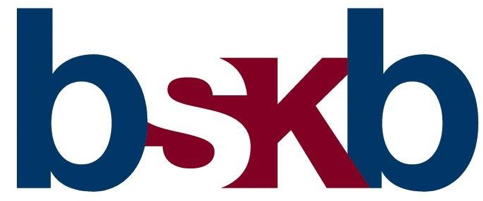Summer Patent Seminar
Registration for this seminar is now closed. Please check back for updates on next year's seminar dates. For further inquiries, email clientrelations@bskb.com
More Information
Who Should Attend?
- In-house counsel, technical advisors, and IP coordinators looking for a comprehensive overview of U.S. patent practice.
- Patent attorneys and agents from abroad who are interested in developing a thorough understanding of U.S. patent practice.
For over 40 years, BSKB has been providing participants of our summer seminar with a comprehensive overview of U.S. patent law. The Summer Patent Seminar (SPS) focuses primarily on the practical problems encountered in obtaining valid and enforceable U.S. patents, as well as enforcement of patent rights after grant. The seminar encompasses lectures provided by experienced practitioners who encourage questions and discussions in the class.
General Information
Lectures this year will be held at The Archer Hotel Falls Church, in the metropolitan Washington, DC area. Classes generally run from 9:30 am to 4:00 pm daily. Detailed class schedules will be issued prior to the start of the seminar. Planned social activities give participants the chance to interact with other participants. These activities include at least an opening “getting to know you” reception, a two-day trip outside of the Washington, DC area, and a closing banquet.
Registrations are encouraged by March 31st and are due by April 26th, 2024. The fee for the 2024 Summer Patent Seminar is $3,750 USD. Discounts for In-House Counsel are available. Payment is accepted in the form of a wire transfer, check, or credit card. If a participant chooses to pay using a non-US credit card there will be an 8% transaction fee added to the final bill. The seminar fee includes the lecture materials, out-of-town trip, and social events (an additional fee may be required for accompanying guests to attend certain social events). BSKB can provide information regarding recommended nearby hotels.
Please contact BSKB at clientrelations@bskb.com with any questions.
Topics Covered
Filing and Prosecuting Patent Applications Strategies, formal requirements and timelines for filing and prosecuting patent applications in the U.S. Patent and Trademark Office (USPTO).
Statutory Subject Matter The various types of inventions that can and cannot be protected by United States patents, with an introduction to issues unique to computer, Internet, business method, biotechnology, design and plant patents.
Prior Art and Obviousness Detailed discussion of prior art under the various sections of 35 U.S.C. § 102, as well as the types of prior art that can be used in making obviousness rejections. Practical suggestions will be given concerning how to overcome prior art rejections.
Duty of Disclosure The duty of disclosure requirements and consequences of failing to comply with this duty. Practical suggestions will be given and detailed procedural requirements will be explained.
Benefit of Earlier Filed Applications/Continuing Patent Application Filing Strategies Discussion of use of foreign, U.S. provisional, PCT, continuation, divisional and Continuation-In-Part (CIP) applications.
Post Grant Patent Procedures Discussion of strategies used by patent owners and competitors to strengthen, modify or attack granted patents in proceedings before the USPTO. These proceedings include ex parte reexamination, reissue patent applications, post-grant review, inter partes review and supplemental examination, as well as other useful proceedings and strategies.
Literal Patent Claim Scope Interpretation and Infringement Examination of the tools used to interpret the literal scope of a patent claim based on the most relevant U.S. court decisions. Addresses claim interpretation and literal infringement and gives special consideration to “product-by-process” and “means-plus-function” claim language.
Doctrine of Equivalents and Prosecution History Estoppel Analysis of the “doctrine of equivalents” under U.S. case law, including its potential benefit to patent claim scope. Includes discussion of limitations on this doctrine, including “prosecution history estoppel” and the “all elements rule.”
Litigation Issues Examination of various strategies involved in litigation before a U.S. court from the perspective of both a patent owner and competitor. Pre-litigation strategies, such as sending or responding to a “warning letter” and “discovery,” trial procedures and remedies, such as infringement damages and injunctions, are addressed.
